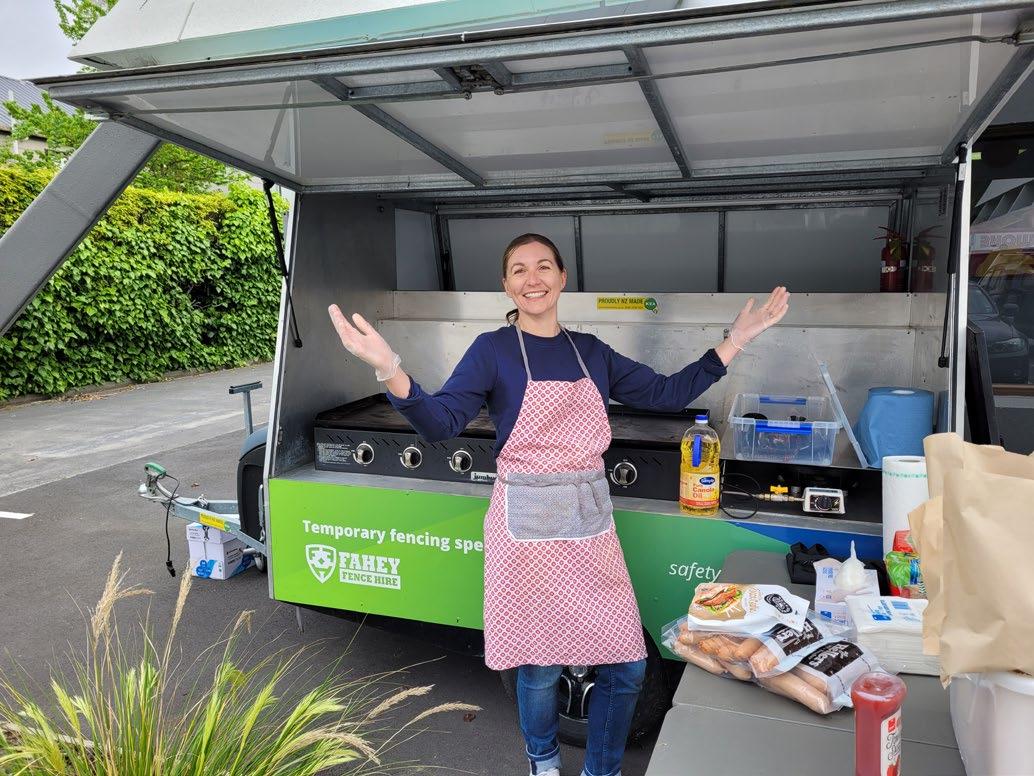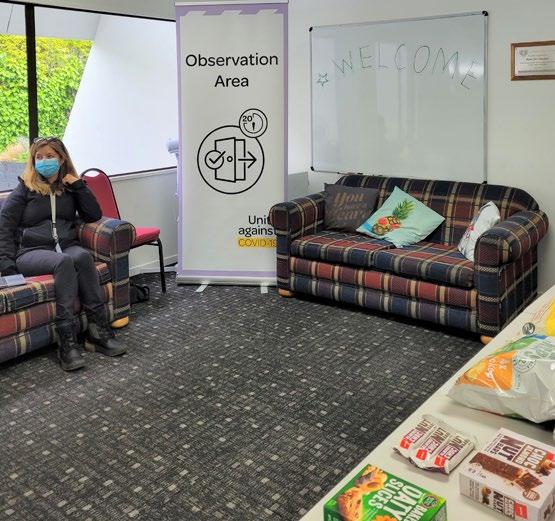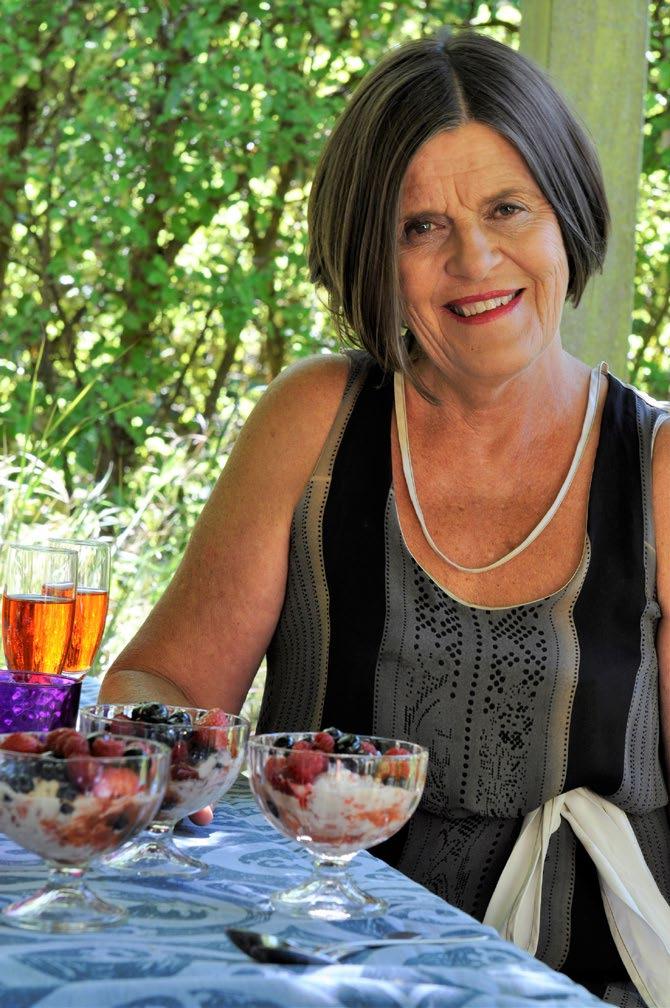
4 minute read
› Dispelling vaccine myths, one conversation at a time › Woman with health issues overcomes COVID-19 vaccine fears...
our stories – a – ta –tou ko –rero
15 November 2021
Advertisement
Dispelling vaccine myths, one conversation at a time
The team at 298 Youth Health Centre are investing time and resources into dispelling COVID-19 myths and breaking down barriers to getting vaccinated. Clinical Team Leader Emma Maguire says their patients are some of the most vulnerable and the team are keen to remove any barriers preventing them from getting vaccinated.
“We work with 10 to 25-year-olds providing free primary health care services. Our doctors, nurses, counsellors and youth workers provide wrap-around support service to young people who typically don’t access health care.” “These are young people who may be homeless, just recently out of prison, or at risk for a variety of reasons,” she says. About three quarters of the centre’s clients are unvaccinated, many are vaccine hesitant due to things they’ve seen on social media. “We employed one of our nurses to phone our patients individually to talk about these issues. Being a health professional that they trust, they were comfortable having the conversation.
“This has proved very effective in dispelling some of the myths that these young people are hearing. At the same time, we wanted to understand the barriers they’re facing to getting vaccinated. Feedback was that they felt scared to be vaccinated but would come to the centre if it was offering the vaccine, as it is a place they trust with people they know. A recurring theme was that they thought COVID-19 was only a risk to older people. This is despite Ministry of Health data as at 5 November, that 21 percent of all cases in the country are aged 20 to 29, and 18 percent are aged 30 to 39. Working with Canterbury DHB, a pop-up vaccination clinic was held at the centre in early November and 37 patients were vaccinated.
“I’d like to acknowledge the excellent support from the vaccination team who provided reassurance to patients,” Emma says. One of those who changed her mind about COVID-19 vaccination is a young mother who was previously adamant she wouldn’t get vaccinated. “This young mother came in last week to get a COVID-19 test because she was at a location of interest. I spoke to her again about the COVID-19 vaccination and invited her to the clinic.
“I couldn’t believe it when she turned up on Tuesday and got vaccinated,” Emma says. People who have barriers to accessing trustworthy information need extra support in the form of ongoing conversations with people they know and trust. “Some of these people may work two jobs and may have no time to watch the news to hear about what’s going on in New Zealand and overseas.”
The centre is continuing to invest time and resources in contacting its patients to encourage them to attend the next pop-up vaccination clinic on 23 November.
298 Youth Health Centre General Manager Fiona Kay about to get cooking on the barbecue
The observation area of the pop-up vaccination clinic A vaccine booth at the popup clinic

15 November 2021
Woman with health issues overcomes COVID-19 vaccine fears
“I want others to feel the relief I have right now after getting fully vaccinated,” says Christchurch woman, Rosie Belton.
Rosie feared getting the COVID-19 vaccine, as she’d experienced anaphylaxis (allergic reaction) with penicillin, has other multiple allergies, has had brain surgery, and lives with lymphoma, a form of cancer. “I have been vulnerable health-wise so when COVID-19 came along I was very worried. I have co-morbidities which would be a big problem if I got COVID-19, but I was terribly anxious about any kind of vaccinations, not just Pfizer. Because of my multiple allergies I don’t usually like to try anything new.” Rosie did all the right things; she spoke with her general practitioner (GP), consulted with her allergy specialist at the Canterbury DHB, and read information from reputable sources including Medsafe and the Centers for Disease Control and Prevention (CDC). Once she felt assured the risk of getting the vaccine was less than what would happen if she got COVID-19, she decided to go ahead. She initially went along to The Princess Margaret Hospital vaccination clinic but because of her many allergies was referred to Christchurch Hospital’s COVID-19 Vaccine Adverse Reaction Clinic.
Rosie says she was nervous prior to getting her first COVID-19 vaccination. “When you’ve had anaphylaxis, the last thing you ever want is to go through that again.” She felt well supported at the clinic. “They had a plan if anything went awry and it was spelt out to me. The staff were amazing, I could not sing their praises enough.” The 72-year-old is proud to say: “I’m still here. I’m still alive. Please try to set aside your fear of getting vaccinated. We all need to try and be part of the team of five million.” Canterbury DHB Medical Specialist Alan Pithie says there is no medical condition that is contraindicated, which means it is not advisable for someone to have the vaccine.
“The only medical reason not to have the Pfizer vaccine is severe allergic or adverse reaction to the first dose or any of the constituents or ingredients in the vaccine.
People who have co-morbidities have an increased risk of a bad outcome if they get COVID-19 and have much to gain from being vaccinated. “If you have fears, speak to your GP in the first instance.” he says.

Rosie Belton










